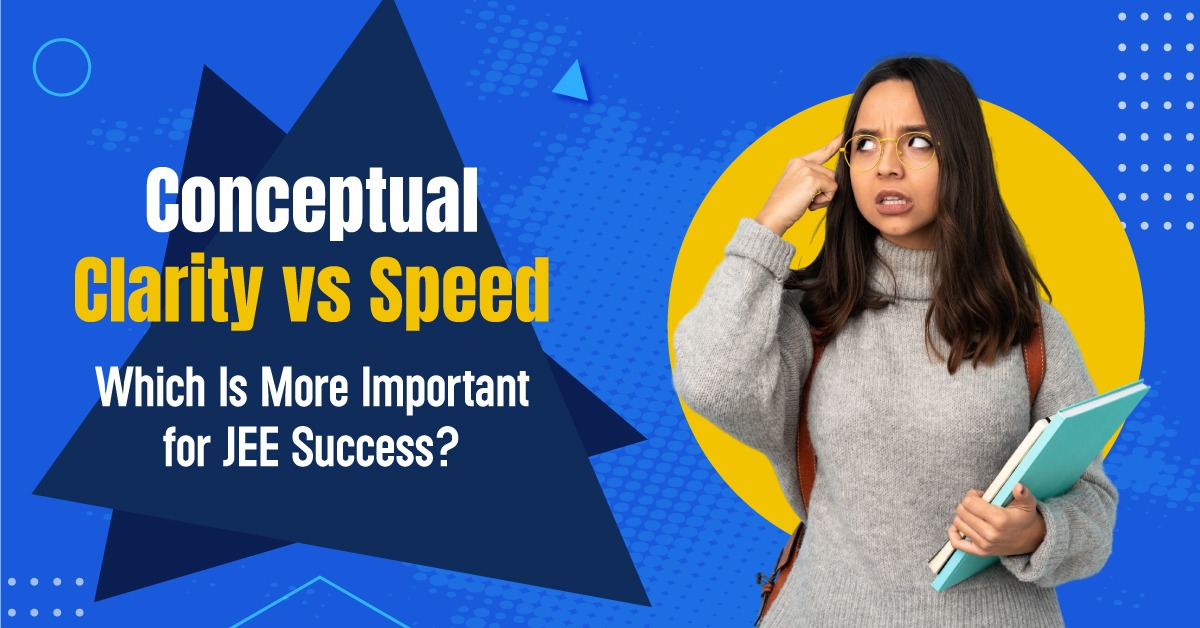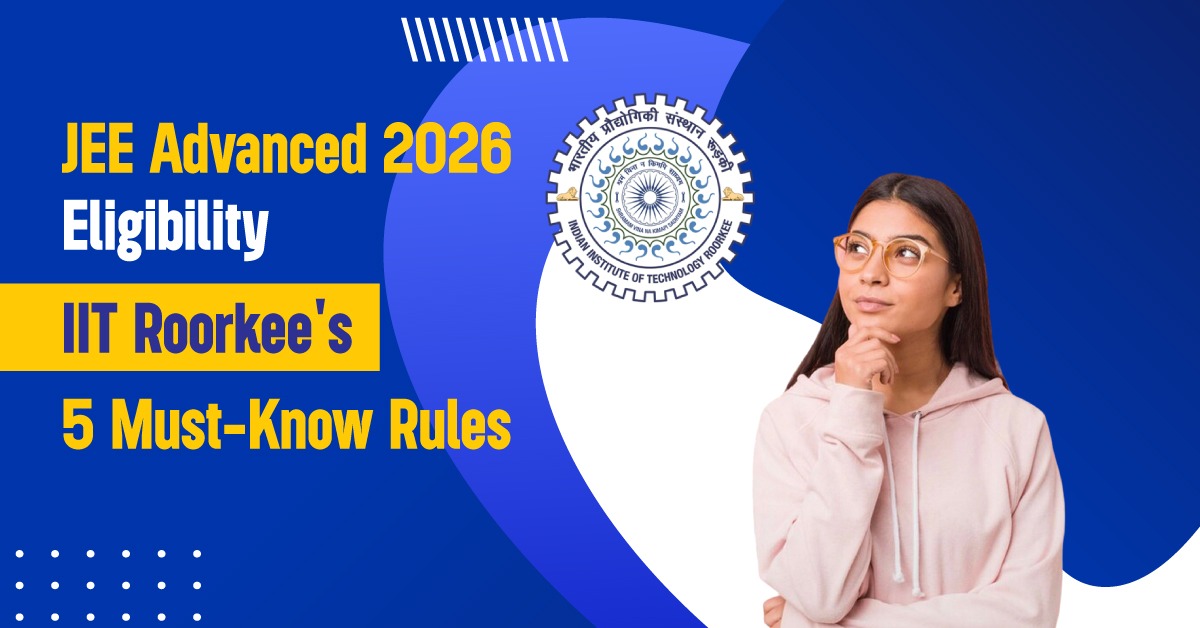
If you’ve spent any time in the JEE ecosystem, you’ve probably heard the endless debate: Is it better to have deep conceptual clarity, or is speed the real game-changer? It’s a classic tug of war. On one side, the purists swear by conceptual clarity in Mathematics for JEE, arguing that true understanding is non-negotiable. On the other hand, the pragmatists insist that without speed, even the deepest knowledge won’t translate into marks.
So, who’s right? Let’s cut through the noise and get real.
The Bedrock: Conceptual Clarity in Mathematics for JEE
Let’s be honest, you can’t fake fundamentals. I’ve seen countless students skip the “why” and jump straight into solving hundreds of problems. It might work for school exams, but JEE is a different beast. The exam is engineered to expose shaky foundations.
Here’s why conceptual clarity isn’t an option; it’s essential.
You can’t Memorize Your Way Through JEE: The paper tests application, not rote recall. Those infamous “twist in the tale” questions? Only students with strong conceptual clarity in Mathematics for JEE can decode them. If you only know how to plug numbers into a formula but not why it works, you’ll hit a wall.
Fewer Silly Mistakes: When you truly understand a concept, say, the geometric meaning of a derivative or why a particular integration technique applies, you’re far less likely to misapply it under pressure.
Long-Term Retention: Concepts, once internalized, stick for life. Formulas crammed the night before? They evaporate the moment stress kicks in.
Think of conceptual clarity as your mental architecture, for it’s what keeps you steady when the questions get unconventional or layered.
The Game Changer: Speed
But let’s not romanticize depth at the cost of performance. I’ve mentored brilliant students who could derive Maxwell’s equations from scratch… yet couldn’t finish Section B in time. In JEE, time is as much a constraint as knowledge.
Why speed matters:
Time Is the Real Test: JEE isn’t just about what you know; it’s about how much you can accurately solve in 180 minutes. Speed = opportunity.
Revision is a Superpower: Finishing early isn’t about showing off; it’s your safety net. That extra 10 minutes could mean catching a sign error in calculus or rechecking a coordinate geometry answer.
Confidence Under Pressure: Knowing you can pace yourself calms your nerves. And a calm mind makes fewer errors; ironically, speed supports accuracy when built on clarity.
Remember: Speed isn’t rushing; it’s efficient problem-solving born from familiarity.
Check out our subject-wise JEE prep course
The Real Answer? It’s Not “Conceptual Clarity vs Speed” It’s Both.
Here’s the truth I’ve learned from my own JEE journey and years of mentoring: conceptual clarity and speed aren’t rivals, they’re teammates.
Clarity comes first. Speed follows naturally.
You don’t “practice speed” in isolation. Real speed emerges when your brain recognizes patterns instantly because you’ve internalized the logic behind every method. When you understand why L’Hospital’s Rule works, you don’t hesitate. When you’ve visualized conic sections deeply, you don’t waste time sketching every detail.
A Practical Prep Roadmap: Merging Clarity & Speed
Phase 1 (Months 1–8): Build Unshakable Foundations
Focus entirely on conceptual clarity in Mathematics for JEE. Use trusted resources like NCERT, Cengage, or RD Sharma. Solve problems without a timer. Ask “why?” constantly. This is where intuition is born.
Phase 2 (Months 9–12): Practice with Purpose
Now that your base is solid, shift to timed drills, but start with accuracy first. Then layer in speed: “Solve 8 calculus problems in 20 minutes.” Use shortcuts only if you understand their derivation. Blind tricks backfire in JEE Advanced.
Phase 3 (Last 4–6 Months): Mock Tests + Deep Analysis
Treat every mock like the real thing. After each test, diagnose:
Was I slow because I was confused? → Conceptual clarity gap.
Did I rush and miss an easy question? → Speed calibration needed.
This feedback loop turns mocks into your most powerful learning tool.
The Formula 1 Analogy
Think of yourself as an F1 driver.
Your conceptual clarity in Mathematics for JEE is the high-performance engine—reliable, powerful, built over months of tuning.
Your speed is your driving skill, knowing when to accelerate through easy problems, when to brake and think on tricky ones, and how to navigate the track (exam) efficiently.
You need both to win the race.
Wrapping Up: Reframe the Debate
Let’s stop framing it as “conceptual clarity vs speed.” Instead, see it as a progression:
Clarity without speed = Deep knowledge, low score.
Speed without clarity = Guesswork, careless errors, inconsistent performance.
Clarity + speed = The topper’s edge. The sweet spot where understanding meets execution.
So build your foundation like it’s forever. Master conceptual clarity in Mathematics for JE, E, not just to solve, but to see the math. The speed? It’ll come. And when it does, it’ll be unstoppable.







0 Comments